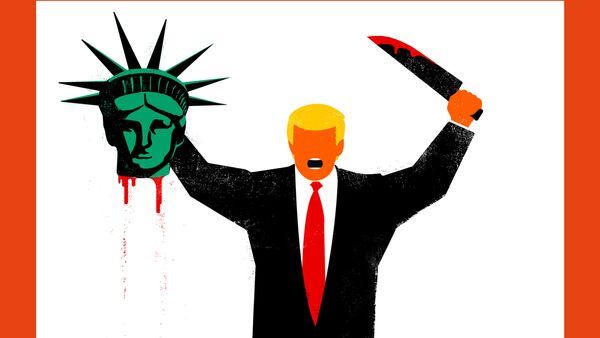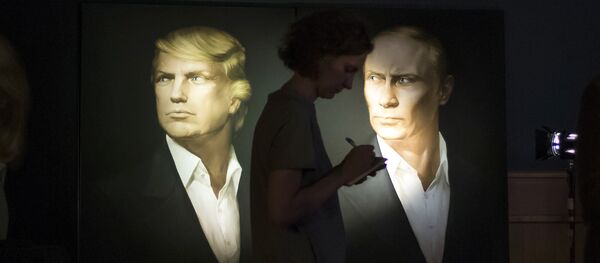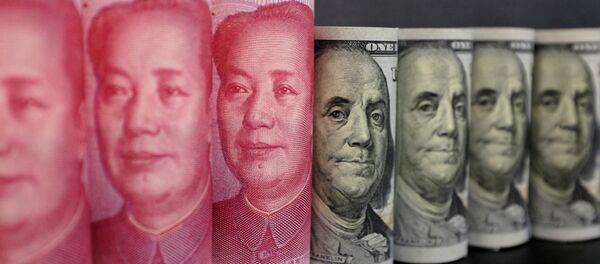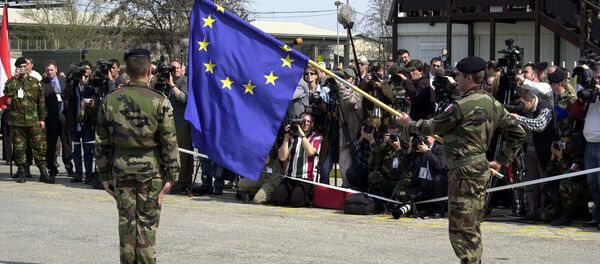The provocative cover, featuring the President wielding a bloody knife as the decapitated head of the world-famous American symbol of freedom drips blood, has resulted in heated discussion on social media, and even to a debate about the implicit comparison made between Trump and the Daesh terrorists' habit of chopping off the heads of their enemies.
I don't recall @DerSPIEGEL depicting Muslim terrorists this way, when they actually do behead people. Just the guy who wants to stop them. pic.twitter.com/uxOLAvBmDW
— Ezra Levant 🇨🇦 (@ezralevant) 3 февраля 2017 г.
But for others, the Spiegel cartoon is a perfect symbol in what has already become a long and nasty series of tense exchanges between European officials and media and the Trump administration and its American and European supporters.
Trump and his team have been no slouches in trading barbs. Last month, the President reiterated election campaign-era language when he said that NATO was "obsolete." Trump also complained that Europe doesn't pay enough for its own security, and said that German Chancellor Angela Merkel had made a "catastrophic mistake" with her open-door immigration policy.
Late last week, building on Trump's earlier assessment that the EU was little more than a "vehicle for Germany," Peter Navarro, the head of Trump's new National Trade Council, said that the Euro was "grossly undervalued," and suggested that the currency was really just an "implicit deutsche mark" designed to give Germany a competitive advantage and to "exploit other countries n the EU as well as the US."
RIA Novosti news agency contributor Igor Pshenichnikkov, an advisor to the director of the influential Moscow-based Russian Institute of Strategic Studies (RISS) think tank, believes that European elites' tense attitudes toward Trump are perfectly understandable, given that they lead directly to questions over the future of the EU itself.
"European elites, until recently moving toward their 'bright future' in America's footsteps, distinctly feel that today, a singular question hangs over Europe like the Sword of Damocles: What will happen to the EU?" Pshenichnikkov wrote.
The analyst pointed out that during the US election campaign and since his inauguration, Trump seems to have made it deliberate policy to avoid any mention of the EU. In fact, Pshenichnikkov noted, "as far as the EU is concerned, it seems either to be not at all included in the new president's agenda, or takes a very small place there."
This, Pshenichnikkov noted, means that while "until recently, the relationship between the US and the EU seemed connected by an indivisible bond between the leading powers of the West in both its military and financial-economic foundations, the new President is making it clear that the EU is of no interest to him."
The political analyst recalled that as expected, newly minted Secretary of State Rex Tillerson is on the same page as Trump as well. "Tillerson hardly speaks about the prospects of cooperation between the US and the EU. He mentions the EU only in the context of sanctions against Russia, and even then, only in the sense that sanctions should not interfere in joint work with Russian enterprises." Otherwise, "he considers Europe [collectively only as a] comfortable market for American energy supplies."
Finally, Pshenichnikkov noted, "it's worth remembering that among Trump's mediators on relations with Russia is former Secretary of State Henry Kissinger. Kissinger is opposed to turning Europe into a region with a powerful status." Moreover, if Niall Ferguson's take on a Kissinger-inspired strategy is correct, Trump may attempt to modify the North American Free Trade Agreement, shaping it instead into a 'North Atlantic Agreement', where Mexico would be excluded and replaced by Britain, "bring[ing] the United Kingdom directly into a post-EU Anglo-Atlantic sphere."
In light of Trump's demands that the Europeans contribute more to paying in to their own defense, Pshenichnikkov suggested that the concept of the European Army is also on the table once again. "On the other hand, if Trump is right, and the EU does fall apart, it definitely won't need common army, either," he added.





